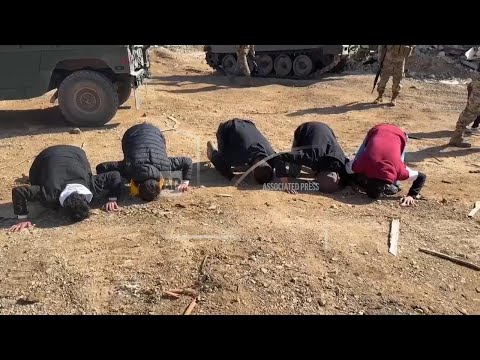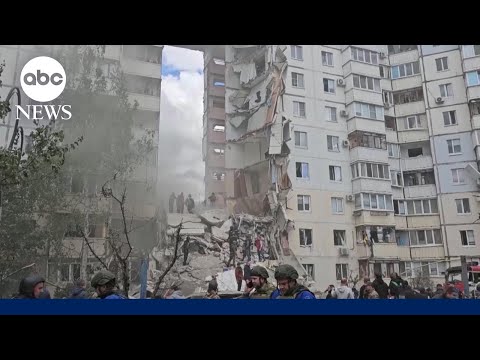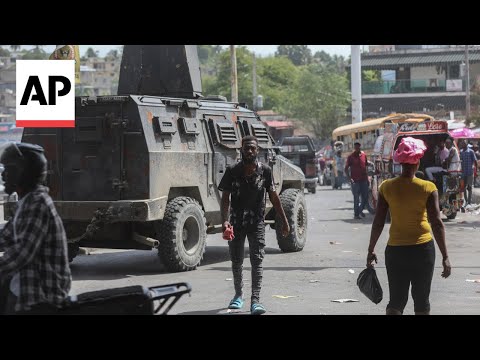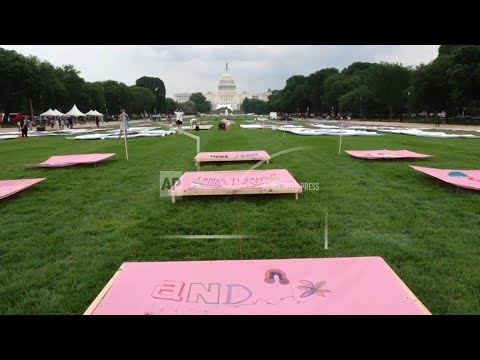(18 Feb 2025)
RESTRICTION SUMMARY:
ASSOCIATED PRESS
Kfar Kila, Lebanon – 18 February 2025
1. Various of people entering Kfar Kila village shouting slogans, UPSOUND: (Arabic): "At your service Nasrallah (former Hezbollah’s secretary-general Hassan Nasrallah), at your service (Imam) Hussein, God is the greatest O Hussein"
2. SOUNDBITE (Arabic) Abdullah Juma, from Kfar Kila village:
“Our joy is indescribable. Thanks to the martyrs, we returned to our village after a year and a half free with our heads raised high. This land is our land, and the owner of the land always prevails."
3. Various of people praying at main square of Kfar Kila village
4. Various of destruction and destroyed buildings in Kfar Kila village
5. SOUNDBITE (Arabic) Hassan Sheet, mayor of Kfar Kila:
“90% of homes in the village are completely destroyed while the remaining 10% were partially damaged. There are no homes nor buildings standing, all damaged either by airstrikes or bombs or by bulldozers. God willing, we can rebuild it as the destruction is immense."
6. Various of destruction and destroyed buildings in village
7. SOUNDBITE (Arabic) Abbas Fadallah, Shiite Muslim cleric from Kfar Kila:
“It is a feeling mixed with joy and sadness — joy that we are taking back our land, sadness that we have lost many civilian martyrs and mujahideen martyrs, but this is life. There has to be a giving."
8. Various of Lebanese army bulldozer clearing rubble
9. Wide of Lebanese army vehicles
STORYLINE:
Israeli forces withdrew Tuesday from border villages in southern Lebanon under a deadline spelled out in a U.S.-brokered ceasefire agreement that ended the latest Israel-Hezbollah war, but stayed put in five strategic overlook locations inside Lebanon.
Top Lebanese leaders denounced the continued presence of the Israel troops as an occupation and a violation of the deal, maintaining that Israel was required to make a full withdrawal by Tuesday.
The troops’ presence is also a sore point with the militant Hezbollah group, which has demanded action from the authorities.
Lebanese soldiers moved into the areas from where the Israeli troops pulled out and began clearing roadblocks set up by Israeli forces and checking for unexploded ordnance.
They blocked the main road leading to the villages, preventing anyone from entering while the military was looking for any explosives left behind.
Most of the villages waited by the roadside for permission to go and check on their homes but some pushed aside the roadblocks to march in.
Elsewhere, the army allowed residents to enter.
Many of their houses were demolished during the more than year-long conflict or in the two months after November’s ceasefire agreement, when Israeli forces were still occupying the area.
In the border village of Kfar Kila, people were stunned by the amount of destruction, with entire sections of houses wiped out. Some knelt on the ground and prayed in the village’s main square.
In the main village square, Lebanese troops deployed as a military bulldozer removed rubble from the street.
Abbas Fadallah, a Shiite Muslim cleric from Kfar Kila, said he is experiencing a mix of joy and pain.
While Fadallah said he is happy to return, he is sad because of the loss of "many civilian martyrs".
Kfar Kila’s mayor, Hassan Sheet, told The Associated Press that 90% of the village homes are completely destroyed while the remaining 10% are damaged.
“There are no homes nor buildings standing,” he said, adding that rebuilding will start but the destruction is "immense".
AP video by Fadi Tawil and Mahamad Anouti
Find out more about AP Archive: http://www.aparchive.com/HowWeWork
Twitter: https://twitter.com/AP_Archive
Facebook: https://www.facebook.com/APArchives
Instagram: https://www.instagram.com/APNews/
You can license this story through AP Archive: http://www.aparchive.com/metadata/youtube/2df32ab6267b434aaf3dddeecd17b85e
Author: AP Archive
Go to Source
News post in February 23, 2025, 3:05 pm.
Visit Our Sponsor’s:
News Post In – News





